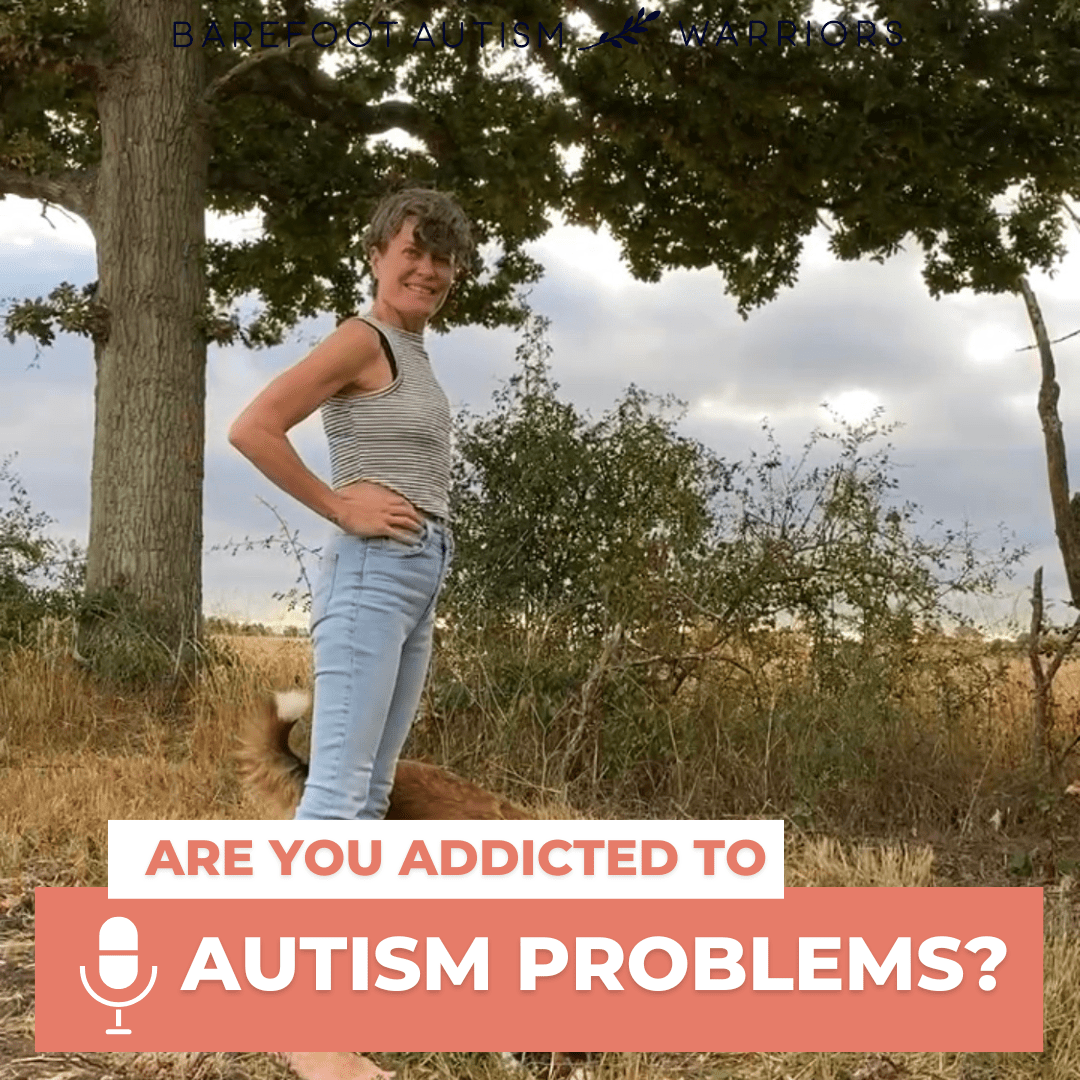Listen to this podcast before you download this FREE GUIDE
I know. It sounds crazy. But being addicted is not only something we experience with food, cigarettes, and alcohol. Being addicted to problems is actually not unusual. I was. And I sure as heck didn’t feel crazy.
Why would you be addicted to autism when all you (think) you’re doing is trying to set your child free? Here are a couple of reasons why:
Reason 1:
We get attached to… and identify with… the role of the struggling autism mama. In the beginning, this role and the diagnosis were some sorts of comfort. I did not have to change anything because the experts told me that this was for life. I got attached to my helplessness. I got attention and people felt bad for me. They helped me. I thought I needed that. I thought that this was something I had to COPE with (because people told me I couldn’t change the situation.)
Reason 2:
Hormones. Pain and fear hormones (adrenaline and cortisol) are very stimulating and addictive, just like dopamine. When we get hooked on them, we will gravitate toward painful situations to feel the rush of the release of these hormones. Our problems become part of our identity. They become our dysfunctional, yet predictable familiar situation. Our brain gets addicted to the fight/flight/freeze mechanisms, and we keep recreating situations, thoughts, and emotions to match this vibration.
This is NOT something we do consciously. Subconsciously we can trick ourselves into sabotaging our own healing journey so that we can stay in the adrenaline/cortisol loop.
But there’s more 🙂 The more intelligent you are, the more sophisticated your self-sabotage patterns will be. The brain LOVES habits and familiarity. Even when the familiar is painful and chaotic.
How might that scenario play out for an intelligent person like yourself?
You might end a diet before it has had time to show effect (which is a minimum of 6 months) and tell yourself that “nothing works”.
You might postpone decisions, and lifestyle changes you intuitively know might help your child.
You might stay in an unhealthy environment.
You might push yourself too hard or multi-task so that you get too overwhelmed to change anything.
You might go from expert to expert, from diet to diet, and from advice to advice instead of sticking to one intervention = no results.
And so on.
Surrender and observe yourself from the outside
This might sound strange, but the only way out of this addiction is by surrendering. Autism is a wake-up call and the symptoms and challenges are actually designed to bring you to the edge. It’s designed to bring you to the point of exhaustion because that’s what will get you to the point of no return. And that’s what it takes for us to get ready to make big changes. And we HAVE to face our life, our lifestyle, and our truth in order to turn autism around. We have to make big changes.
I had to get to this point of no return to finally appreciate the wake-up call and surrender to the message of autism.
Today I want to encourage you to surrender to the message of autism and think about what your wake-up call might be.
ALSO: Here are 3 ways we can start turning autism symptoms around together, whenever you’re ready…
1. Send me a voice message and get my feedback on your most pressing struggles.
2. Check out the free video series “The 5 hidden messages behind autism symptoms” and find your child’s unique triggers.
3. Work with me privately
If you’d like to work with me directly to turn as many symptoms around as possible in my Autism Turnaround Coaching and implementation group..send me an email with “coaching” in the subject line and tell me how old your child is. I’ll get you all the details.
Listen to the podcast and please subscribe and give 5 stars for this podcast on Itunes or wherever you listen to this podcast.

